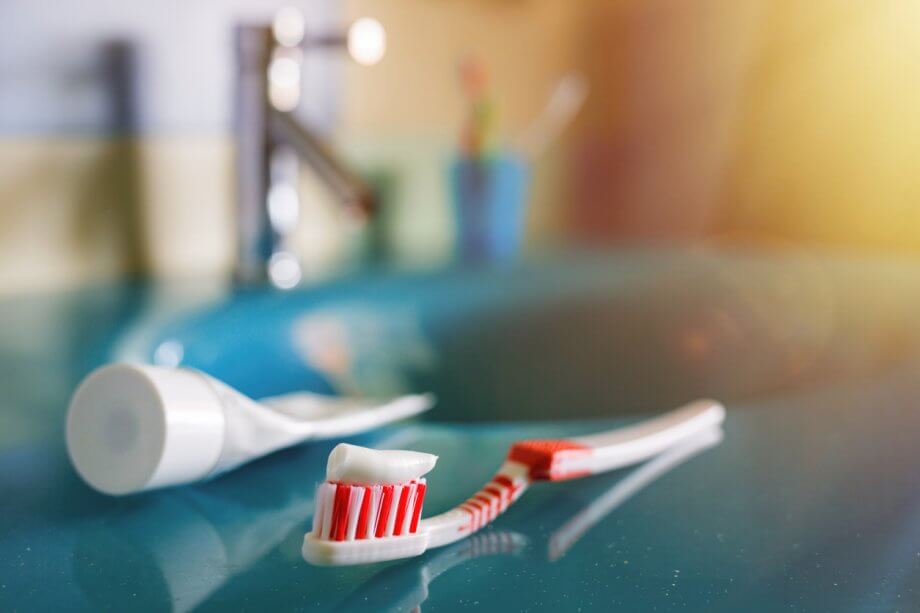Fluoride is a controversial subject. Many of our patients’ parents have strong feelings about the issue; aside from mandatory vaccinations, there’s no other public health policy that generates such heated debate.
In the United States, fluoride had been added to most public water supplies for over 70 years. Given that fluoride is in our water, many parents worry that this, combined with fluoride toothpaste, rinses, and fluoride treatments at the dentist’s office, is leading to overexposure and poor health outcomes.
The American Dental Association's position on fluoride is that it is a safe, effective means of preventing tooth decay in children and adults. If this isn’t enough to let you breathe a sigh of relief, we’ll go over some of the most common concerns we hear from parents regarding fluoride.
Myth or Fact: Studies Show That Fluoride Causes Low IQ in Children
Fact. Yes, it’s true; a study published in Environmental Health Perspectives suggests that prenatal exposure to fluoride can lower children's IQ scores. This is only part of the story, though.
This study was done in Mexico, where naturally occurring fluoride levels are higher in community water and fluoride is also added to salt. Other studies with similar results were also done in areas where naturally occurring fluoride is abundant, making them poor comparisons to our circumstances here. The ADA stands by its position that water fluoridation programs in the United States are effective and safe, concluding that this research is not applicable to American children.
Myth or Fact: Children Should Never Use Fluoride Toothpaste
Myth. All children should use a fluoride toothpaste.
The American Dental Association used to recommend that children under 3 years of age brush their teeth with water or fluoride-free toothpaste instead of fluoride toothpaste to protect them from swallowing fluoride.
More recently, the ADA reversed this recommendation. Current guidelines state that children under 3 are to use an amount of toothpaste equal to the size of a grain of rice. This amount offers the protection of fluoride, but not so much that it would be harmful if swallowed.
Myth or Fact: Fluoride Is Toxic
Fact. Fluoride is toxic––but so are most things in excess.
It's easy to rile people up by labeling things toxic, but even water is toxic if you drink enough of it. It’s the dose that makes the poison. Exposure to excess fluoride is a public health concern, but according to the World Health Organization, municipal water fluoridation programs are not a cause and the contribution of fluoride-containing dental products to overall fluoride intake is minimal.
Adverse reactions to fluoride overexposure like skeletal fluorosis nearly always occur in areas of the world with naturally high fluoride levels in groundwater, like parts of China and East Africa. The Department of Health and Human Services recommends that municipalities maintain a level of 0.7 milligrams per liter, well below the 6 milligrams per liter that increases risk of skeletal fluorosis.
To protect against fluoride toxicity in children, be sure to keep their toothpaste and mouth rinse out of reach. Each year there are several hundred cases of fluoride toxicity involving children who ingest a large amount of toothpaste or drink fluoride mouth rinses.
Myth or Fact: Fluoride Actually Damages Teeth Instead of Protecting Them
Myth. And fact. There are two separate issues at play here.
The damage in question here is dental fluorosis. This occurs when babies and young children are exposed to too much fluoride while their adult teeth are forming; the result is that these teeth come in with noticeable white spots. These white spots are cosmetic and easy to treat. In other words, they barely qualify as “damage.”
Cavities are far more damaging to teeth than dental fluorosis; the tooth-strengthening benefits of fluoride outweigh the risk of white stains from fluorosis.
Myth or Fact: If You Use Fluoride Toothpaste, You Don’t Need Fluoridated Water
Myth. The fluoride in our drinking water serves a different purpose than the fluoride in our toothpaste.
Like many supplements we put on our skin and also take internally, fluoride has different benefits when used topically versus when it is ingested in water. Fluoride in water is systemic fluoride. Once ingested, it is in our bloodstream and saliva, serving to continually protect our teeth and even becoming incorporated into adult teeth as they form in children’s mouths.
Topical fluoride, as found in toothpaste, in-office fluoride treatments, and mouth rinses, promotes the remineralization of enamel and fights against plaque. Because they serve different purposes, both sources of fluoride are needed for optimal dental health.
Learn More About Fluoride Myths and Facts
If you’d like to discuss fluoride with Dr. McGuire, contact us at 908-735-6300 to make an appointment at our Annandale, NJ office.
